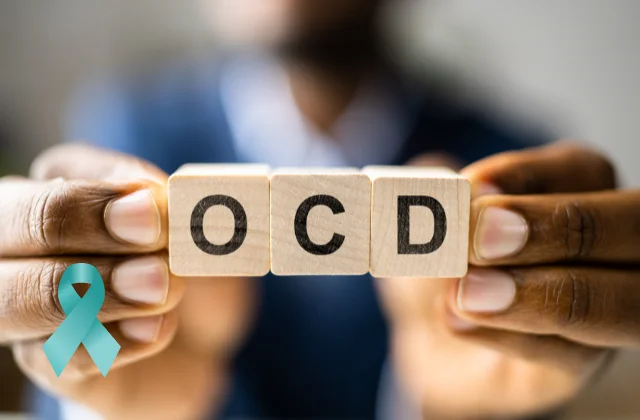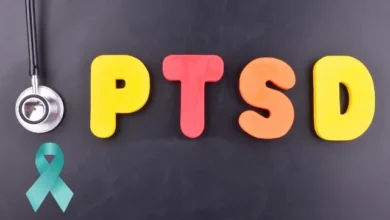Understanding OCD: Symptoms, Causes, and Effective Treatments
A Comprehensive Guide to Managing Obsessive-Compulsive Disorder
Obsessive-Compulsive Disorder (OCD) is a severe mental health condition that significantly impacts an individual’s mental well-being. People with OCD experience persistent, irrational thoughts and a strong urge to act on these thoughts. This disorder traps individuals in a cycle of obsessive thoughts and compulsive behaviors, such as repeated hand washing, checking things, or cleaning, which can significantly disrupt daily activities and social interactions.
What is OCD?
OCD is a mental health disorder characterized by intrusive, unwanted thoughts (obsessions) and repetitive behaviors (compulsions). Individuals with OCD often feel compelled to perform these behaviors to alleviate anxiety or distress caused by their obsessive thoughts. This cycle can lead to significant mental anguish and interfere with daily life. OCD can affect individuals of all ages, from children to adults.
Symptoms of OCD
- Repetitive Thoughts: Individuals with OCD experience recurring thoughts that cause anxiety or distress.
- Excessive Religious or Sexual Thoughts: OCD can involve intrusive thoughts related to religion or sexuality.
- Repeated Actions: A common symptom is the repetition of actions, such as checking if the gas is turned off or if the door is locked multiple times a day.
- Excessive Organization: Individuals may feel the need to arrange items in a very specific manner.
- Repeated Counting: Some people with OCD count objects or actions repeatedly.
- Aggressive Thoughts: Persistent aggressive or harmful thoughts are common.
- Fear of Contamination: Excessive hand washing or cleaning due to a fear of germs or contamination.
Causes of OCD
- Brain Injury: Damage to the temporal lobe or impaired function of the basal ganglia can contribute to OCD.
- Genetic and Environmental Factors: Both genetic predisposition and environmental influences can play a role in the development of OCD.
- Low Serotonin Levels: Abnormally low levels of serotonin in the brain have been linked to OCD.
Treatment for OCD
If you notice symptoms of OCD in someone close to you, it is crucial to seek medical help immediately. A healthcare provider will conduct physical and mental evaluations to determine if the individual has OCD. The doctor will ask about the severity of the symptoms and how they affect daily life.
Types of Treatment
- Medication: Antidepressants are often prescribed to restore the chemical balance in the brain. Various medications can help control OCD symptoms, allowing the individual to regain control gradually.
- Psychological Therapy: This type of therapy helps manage obsessive thoughts and fears. A psychiatrist will suggest psychological therapy based on the individual’s condition.
- Deep Brain Stimulation: This treatment is used for individuals who have suffered from OCD for at least five years. It involves sending mild electrical currents to the brain using electrodes to stimulate specific areas.
Additional Recommendations
- Regular Meditation and Deep Breathing Exercises: These practices are highly effective in reducing stress and tension.
- Adequate Sleep and Physical Exercise: Doctors recommend sufficient sleep and physical activity. They also advise avoiding alcohol and nicotine.
What Should OCD Patients Avoid?
- Sugary Foods: Sugary drinks, soda, candy, and other high-sugar foods can exacerbate anxiety and panic attacks in OCD patients.
- Caffeine and Alcohol: These substances are strictly prohibited for OCD patients. However, small amounts of tea may be permissible.
- Fruits: Fruits are generally beneficial for OCD patients.
- Meat and Fish: Due to the severe nature of OCD as an anxiety neurosis, meat and fish should be avoided in the diet.
Prevalence of OCD
Research indicates that in the United States, approximately 2% to 3% of the population is affected by OCD. Women are slightly more likely to be affected than men. OCD often begins in childhood or adolescence but is most commonly diagnosed in individuals around 19 years of age. It is essential to be vigilant about yourself and your loved ones to ensure timely treatment if symptoms arise.
Frequently Asked Questions (FAQs)
What are the early signs of OCD?
Early signs of OCD include repetitive thoughts, excessive checking, and a fear of contamination. These symptoms can start in childhood or adolescence.
How is OCD diagnosed?
OCD is diagnosed through a combination of physical and mental evaluations. A healthcare provider will assess the severity of symptoms and their impact on daily life.
Can OCD be cured?
While there is no cure for OCD, it can be effectively managed with a combination of medication, therapy, and lifestyle changes.
What are the risk factors for OCD?
Risk factors for OCD include genetic predisposition, brain injuries, and environmental influences. Low serotonin levels in the brain are also associated with OCD.
How does deep brain stimulation help with OCD?
Deep brain stimulation involves sending mild electrical currents to specific areas of the brain. This treatment is used for individuals who have suffered from OCD for at least five years and helps to alleviate symptoms by stimulating the brain.
Conclusion
OCD is a complex mental health disorder that can significantly impact an individual’s quality of life. Early detection and appropriate treatment are crucial for managing symptoms and improving overall well-being. If you or someone you know is exhibiting symptoms of OCD, seek medical help promptly. Stay informed and take care of your mental health.
Thank you for reading. Stay healthy and well. Until next time, take care!




